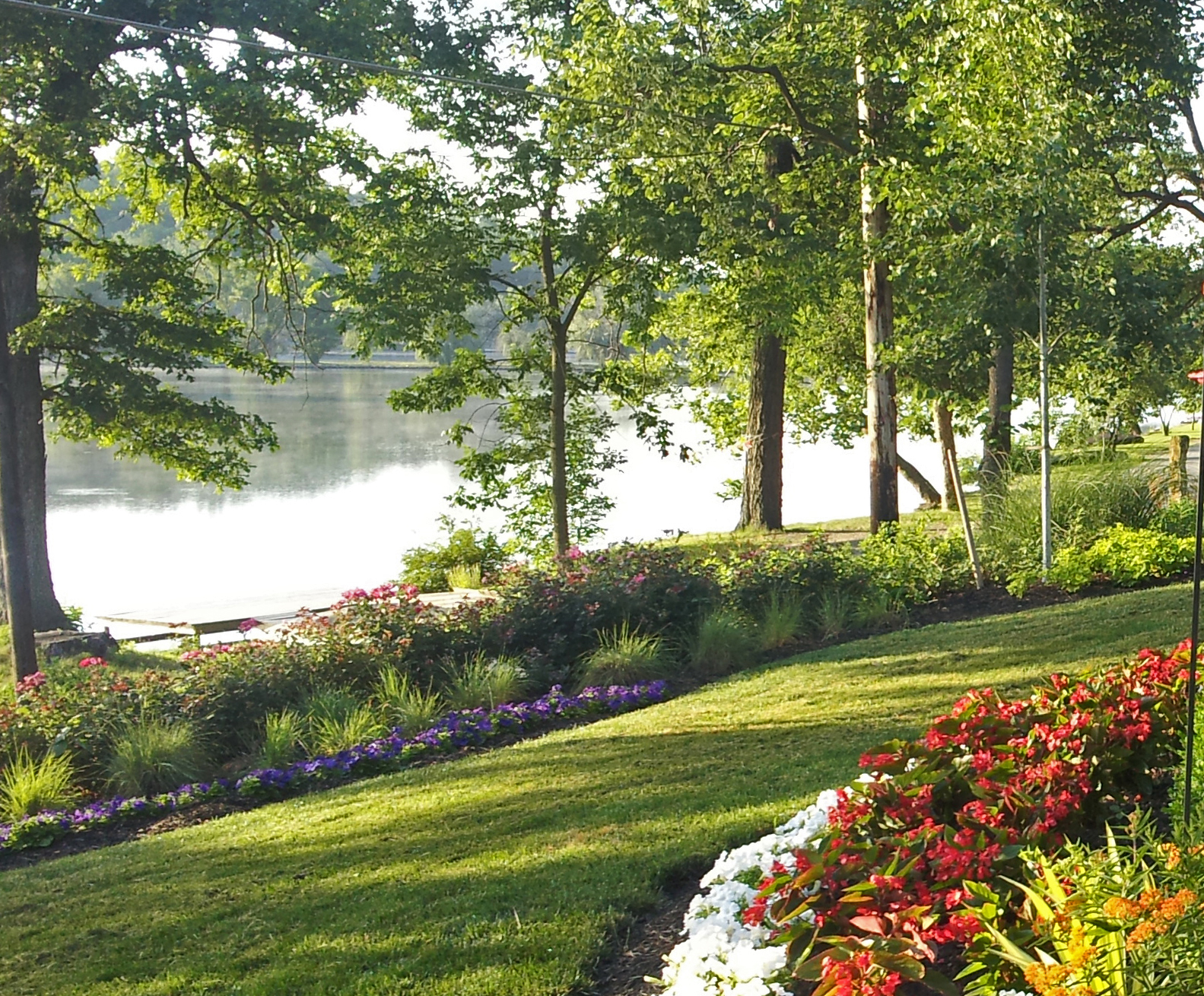
View from my front porch. Design by Embassy Landscape Group.
One of the physicians that I consulted several years ago kept a copy of the Hippocratic Oath in his office as a reminder to himself of his moral responsibilities to his patients. Adjacent to it he had some additional quotations that inspired him. I’m not sure if the wording was the same, but this translation comes very close to what I remember seeing.
The physician treats, but nature heals.
Hippocrates
At the time, I was recovering from a serious illness and was spending quite a bit of time sitting on my screened-in porch wrapped in blankets staring at the lake in front of me and the woods surrounding me. The view seemed to sustain me on the worst days and to energize me on the best. As I sat on my porch and thought about that quote, it made perfect sense to me. Since that time I have read countless research articles exploring the relationship of nature and wellness. Study after study bolster the premise that nature makes us feel good.
Green spaces, particularly those with stands of trees, help elevate our immune systems. Our bodies produce a white blood cell called an NK (natural killer cell) in response to airborne chemicals called phytoncides that trees and plants regularly emit. Our NK cells then help to eliminate virus infected cells and cells of tumors.
Chronic stress can play a role in the development of heart related problems. Heart disease, stroke and high blood pressure are a few of the conditions tied to ongoing stress. According to researchers in the United Kingdom, Denmark and the United States, spending time in nature reduces the amount of the stress hormone cortisol in both men and women, which in turn lowers the risk of cardiovascular issues.
Both childhood and adult obesity rates decline in communities having easy access to green spaces suitable for physical activities. Studies show that exercising outside actually shows more wellness benefits than indoor exercise.
Researchers in both Australia and Scotland are finding that the risk of Type2 diabetes, especially in older adults, is lower in those who have access to parks and other green spaces. Japanese researchers have determined that blood glucose levels of diabetics drop after walking in forests.
Several US studies confirm that surgical patients who have outdoor views of trees and green spaces recover faster and with fewer painkillers and few complaints than those who have no view or views of brick walls.
Improved sleep is another benefit of connecting with nature, especially for men and older adults. A study at the University of Illinois showed that access to nature during the day reduced the number of poor sleep nights from 29 a month to 7.
Finally, there appears to be a relationship between green space and life span. Those who live close to green space appear to have as much as a 12% lower mortality rate, especially from cancer, lung and kidney disease. Although a direct connection has not been established yet, researchers point out that the improved air quality near green space combined with the likelihood of increased physical activity may add to longevity.
As research mounts, proof is coming in for what we have instinctively known for generations – our health and well-being are tied to our connection to nature. Whether it is a forest hiking trail, a neighborhood park, or your own backyard, spending time in green spaces makes you feel better.

